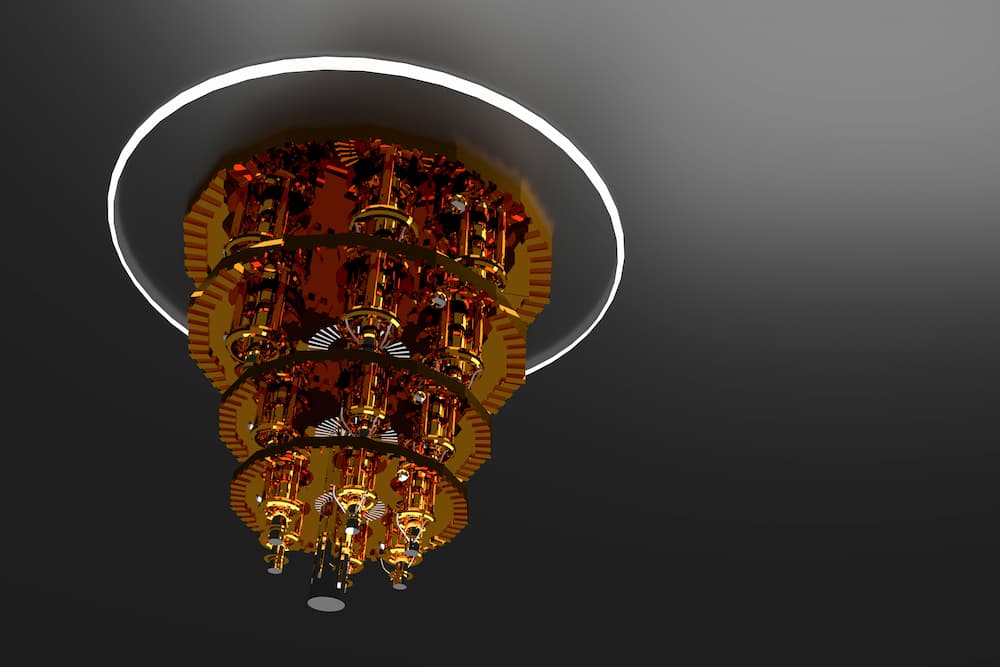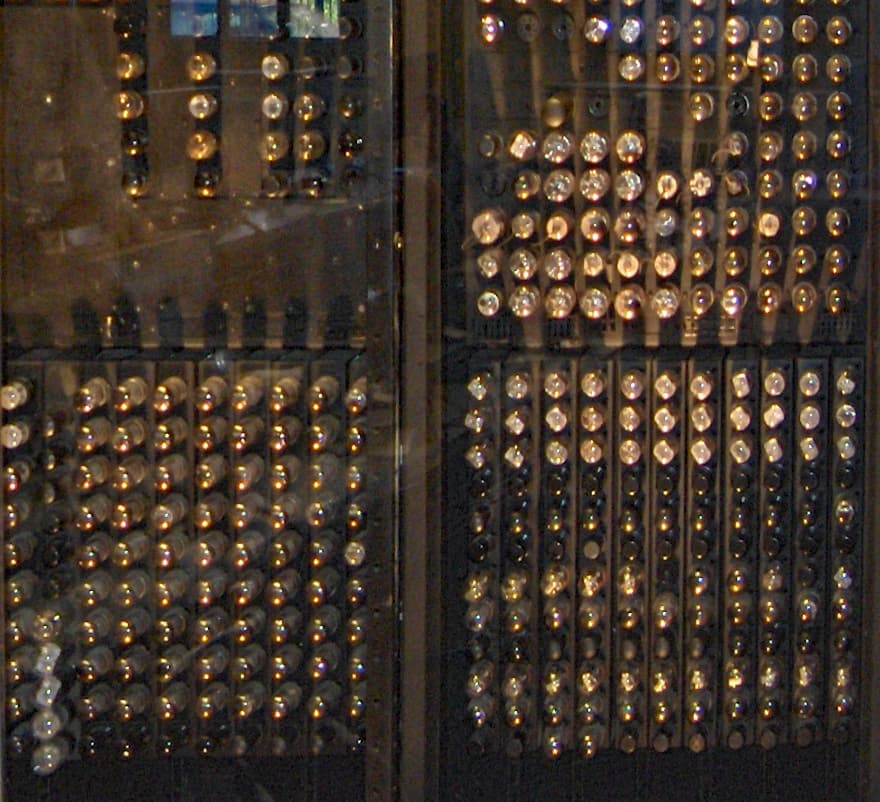
A year ago, on Jan. 12, 2021, I wrote an article titled “Classiq, a technology that facilitates quantum software development.” Classiq was founded in April 2020 by two graduates of the elite “Talpiot” education program and one other colleague and has raised $15.75 million in funding from five venture capital (VC) firms in just one year. One of these VCs is IN Venture, launched by Sumitomo Corp. of Japan. I have been paying attention to Classiq for three reasons: it was founded by a Talpiot alumnus, it is in the cutting-edge field of quantum computing, and Japanese VCs have invested in the company. In a recent press release, NTT DATA stated: “Together with Classiq, we have started a demonstration experiment to improve the efficiency of application development using quantum computers in the financial field.” This collaboration appears to be aimed at evaluating the potential of quantum computing in the financial engineering field of credit risk analysis. Needless to say, NTT DATA is a core company that builds and supports Japan's financial system, and I thought that being selected as a partner by the company might itself demonstrate Classiq's technological capabilities, and signal that quantum computers might have unexpected near-term applications and are not just a technology of the far future. At the end of last year, I asked for an interview with NTT and thankfully the following four people responded to my request and agreed to be interviewed.
Technology Development Division: Mr. Takashi Yami, Mr. Yuuya Kawamata
Financial Business Promotion Department: Eisei Yamamoto, Yumi Tatsumoto
The Technical Development Division was the contact point for the previous news release, but since I am completely unfamiliar with the field of options trading and credit risk analysis, I was grateful that the Financial Business Development Department also attended the meeting. The following is a summary of what the four of them politely told me in response to my rambling questions.
目次
Is there a field that really needs quantum computation?

A quantum computer uses the phenomena of quantum mechanics to perform calculations. One of the most memorable quantum computer media stories was Google's announcement on Oct. 23, 2019, that its quantum computer had succeeded in solving in three minutes and twenty seconds a computational problem that would take current supercomputers 10,000 years to solve. Literally, it was an event that strongly impressed upon us that a quantum computer can provide another dimension of computational power. There is no doubt that fast computation speed is significant, and we often read articles about how a quantum computer can solve, in an instant, a cipher that was thought to be unbreakable due to its huge computational volume. However, in the real world, the pursuit of speed and performance independent of economic rationality can only be pursued in the development of military technology or in the public sector, such as weather forecasting, etc. The fact that a private company like NTT DATA is conducting a demonstration experiment suggests, first of all, that there are fields in the industry where the extension of current computing technology is showing its limits. I asked the team at NTT whether there are fields that really need this kind of order-of-magnitude capability.
The answer is quite clear: the financial field, especially in the area of market transactions where the faster you can do the right calculations, the more money you can make. So, there is a fundamental need for faster calculations in options trading, for which Classiq and NTT are conducting their joint demonstration experiment. For example, if a stock price is expected to rise in the future and you have secured the right to buy the stock at a later date at the current price, you will be able to profit in the future. The converse is also true: if you can sell the stock in the future at the current price when you expect the stock price is likely to fall, you can avoid a loss. Naturally, this requires a prediction of the future. To evaluate option prices based on future predictions, I was told that a partial differential equation called the Black-Scholes equation is required, and the more parameters and scenarios are included, the more accurate the prediction will be. For example, to simulate a scenario that occurs only once in 10,000 times, it must be calculated 10,000 times. To pay attention to such rare scenarios and improve the accuracy of forecasts, the more computing power one has, the better. In the financial field, especially in the area of market trading, the one with superior computational skills wins.

How did NTT DATA find Classiq?
When we asked how NTT DATA came across Classiq, the NTT team told us that they were introduced by a financial institution with which NTT DATA does business. As mentioned above, finance is a world where “those with superior computational skills win.” Major banks have teams of experts, such as Ph.D.s in mathematics, who are constantly evaluating cutting-edge technologies. It seems that it is normal for them to have an office in Silicon Valley, where they search for startups with promising technologies and conduct research and studies. Financial institutions without the ability to conduct such activities will be weeded out. Last year an executive of such a financial institution introduced Classiq, and NTT DATA thought that it was an interesting company.
NTT DATA is not developing the quantum computer itself but is in a position to consider how to use it for business. Since Classiq's platform facilitates the development of quantum programs, NTT DATA, which is in a position to use computers, felt that it would be “interesting.” That was in 2020, when Classiq was still in its infancy, and when asked if they were worried about working with a company that had a short track record, the answer was “no.”
In recent years, NTT DATA has had more opportunities to evaluate and associate with startup companies. The company has gained considerable experience in evaluating the technology and business of such companies, and is confident in its discernment skills. Rather than focusing on performance, it is important to actively try using technologies that look interesting, and when you get along with one startup, there is a possibility that it will lead to a startup of that acquaintance. NTT said that it’s important to be part of that network and that if the number of Japanese companies with this attitude increases, it may make it easier for Israeli start-ups to work with Japanese companies.

What is your assessment of Classiq?
We also asked NTT DATA, which hopes to utilize quantum computation in its business, how it rates Classiq's technology. The company’s representatives gave a glowing review, saying that while there are probably other companies that have similar platform technology, none of them have the advantage of focusing on the ease of software development. Currently, if you want to use a quantum computer, you need to understand quantum mechanics to some extent, and there are not many such engineers in the world. Therefore, the tool is rated highly in the sense that it can be used by people who are not experts in quantum mechanics. Moreover, the development of such a tool itself requires deep expertise in quantum mechanics, and the technological capabilities of the company are highly rated. As someone who has been paying attention to and supporting them since their early days, I was very pleased to hear this evaluation.
So, how much easier do they make quantum software development? I asked if it was easier to develop quantum software algorithms using Classiq's tools than using conventional methods, how much of a difference would that make, and if an analogy could be made that is easy for the layperson to understand. Young people may not be able to imagine this, but the ENIAC machine developed in the 1940s, the prototype of today's computers, had many vacuum tubes and executed programs by switching the wiring of the circuits. Later, logic elements evolved from vacuum tubes to transistors, and in the 1970s, programs could be loaded and executed using punch cards and paper tape. (As an aside, the author has had experience using punch cards to create programs during college practicals.) This may be a bit of a wild metaphor, but it seems that Classiq's current technology delivers this level of improvement. In other words, the development of quantum algorithms used to be like rewiring ENIAC, but Classiq's platform can be as easy as programming with punch cards. This may not be apparent to a generation unfamiliar with punch cards, but to those who have actually used them, it is a significant evolution. By analogy, however, it will be a long time before the quantum computer reaches a stage equivalent to today's PCs, where a high-level language is developed and commands can be typed directly from the keyboard.

When will quantum computers be available?
So when will quantum computers become widely used? Of course, such predictions are not simple, and even experts have varying degrees of confidence in that. However, the technology is definitely moving forward. There are two methods of quantum computers: quantum annealing and quantum gating. The quantum annealing method was put into practical use first, and in 2011, D-Wave, a Canadian company, developed a practical machine. At that time, no one imagined that 10 years later, a machine with 100 qubits (the smallest unit of quantum information) would be using the quantum gate method, but now they are actually using it for demonstration experiments. Considering such circumstances, it was said that the future development of the unexpected quantum gate method may proceed quickly. NTT DATA is following both technologies, and they are aware of the problem that they have in keeping their hands on technologies that have potential while also looking at the needs of the market.
However, as NTT DATA noted, quantum computation has a major research challenge: error correction. Information processed by current binary (0/1) computers always includes redundant bits that are used for error correction. For example, if one of the bits in an eight-bit data transmission is changed to 1 when it should be 0, the calculation result will be completely different. Such an error can be caused by noise in the transmission path. If eight bits are used as a single bit, one bit is used for redundancy and seven bits are allocated for information. Eight bits can be used for 256 numbers. Seven bits can represent only half of that number, 128. The same challenge exists with quantum computers. Currently, a quantum gate machine can only handle about 100 qubits, but in the future, when the world of 100,000 qubits is reached, it may be possible to create a program that makes some sense in reality. However, 100,000 qubits cannot be used for program computation as it is, and if a certain percentage of them are used for error correction, the number of qubits that can be used for practical computation may be one or two orders of magnitude less. It seems that how many qubits are used for error correction is a big research subject at the moment.

Other than the above, why, for example, do we not hear much about the use of quantum computers in the financial sector? He told us various interesting stories such as the field of chemistry is also suitable for the application of quantum computers, the impact of quantum computers on the security of financial services, etc. NTT DATA is researching the potential of quantum computers in terms of both technology and feasibility, and it is a great pleasure for the Israeli community that the technology originating in Israel will be used there to jointly conduct demonstration experiments. In the future, I hope that NTT DATA and Classiq will contribute to the financial winners who have superior computing power relative to others.
https://www.nttdata.com/jp/ja/
Translated by Classiq




